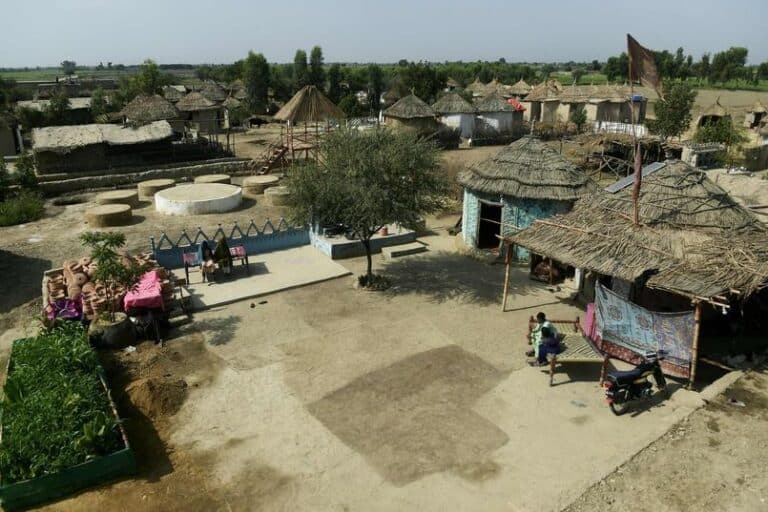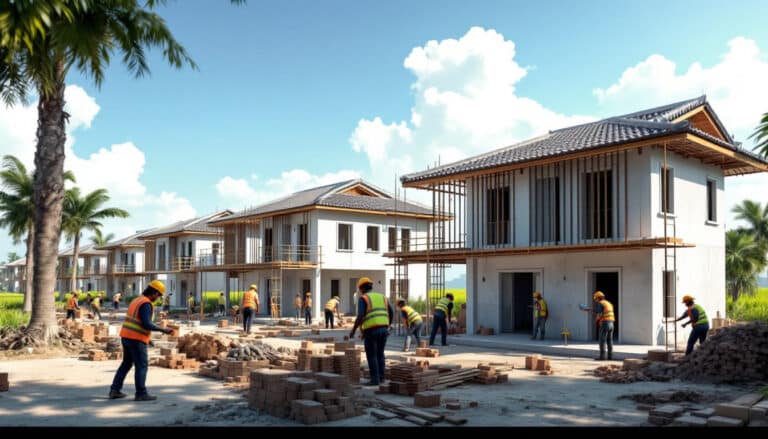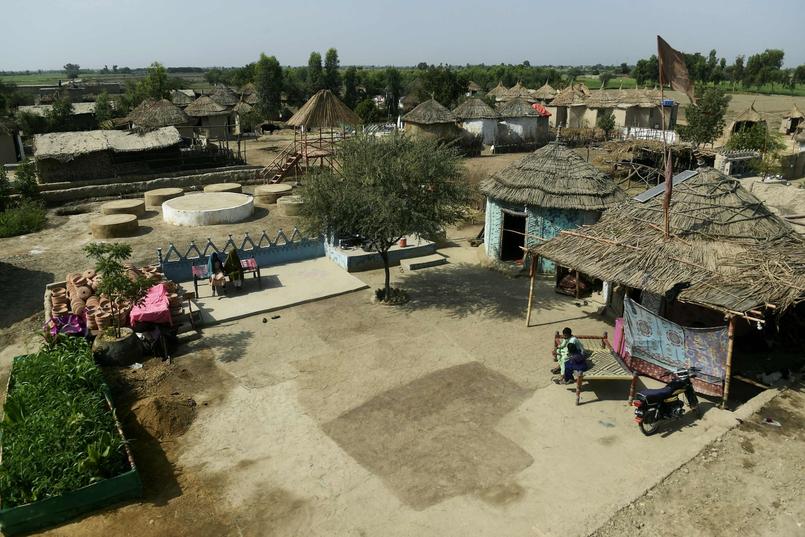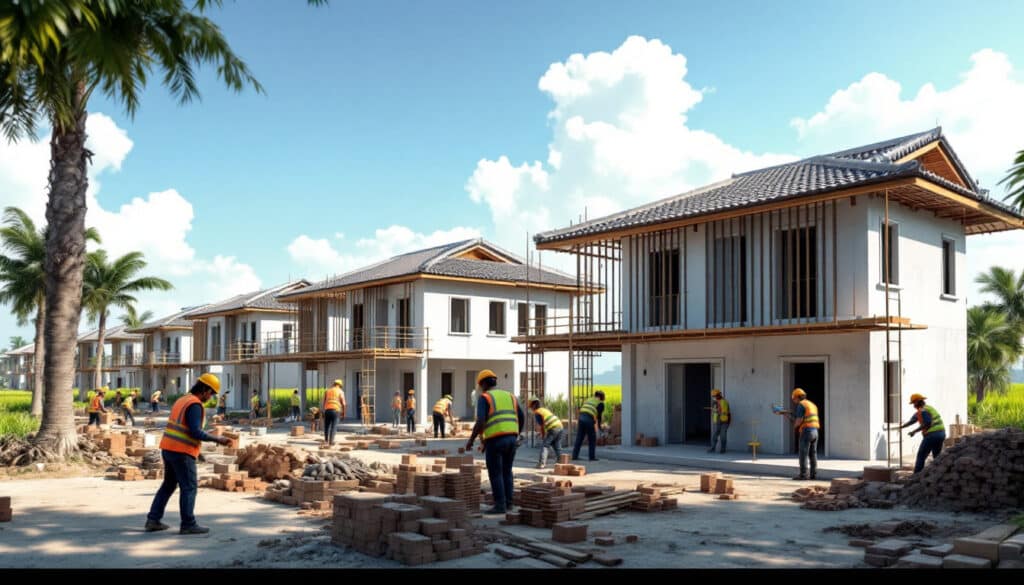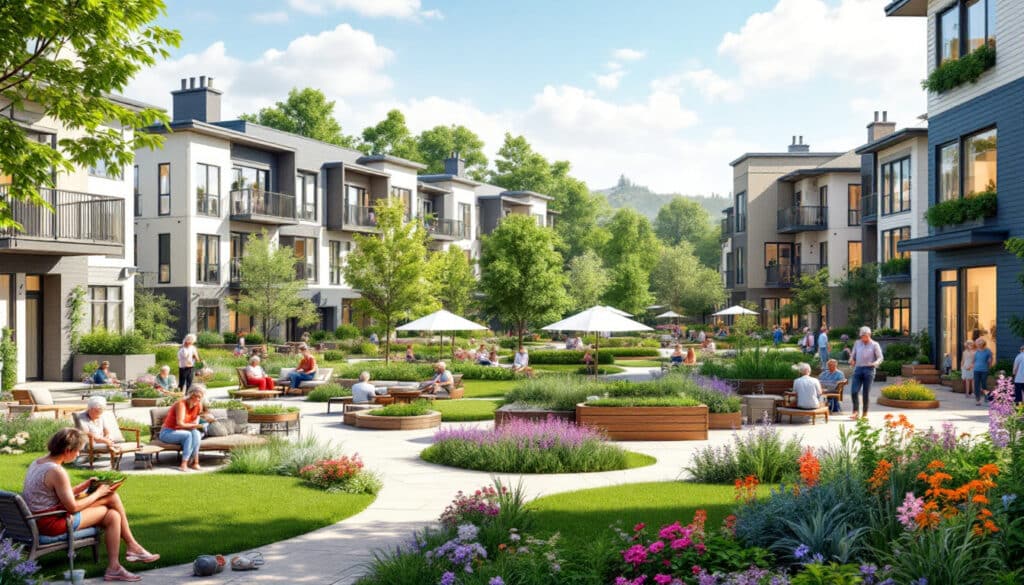Community initiatives play an essential role in strengthening social ties and the resilience of territories. Through the analysis of various case studies, this article examines how citizen engagement can transform neighborhoods, promote mutual aid, and improve the quality of life for populations. The following examples illustrate the importance of collective action in addressing contemporary societal challenges.
Table of Contents
ToggleThe power of social ties in Greater Paris
Social ties are at the heart of urban resilience, denoting a community’s ability to adapt and face challenges. A recent study conducted by Apur highlights that 89% of Greater Paris residents claim to have more than five close acquaintances, both within their families and among their neighbors. Paradoxically, nearly 23% still experience frequent feelings of loneliness. This complex dynamic reveals how strong relationships can become resources in times of crisis.
Such a study emphasizes key keywords, such as ‘solidarity’, ‘community support’, and ‘engagement’. By integrating these concepts, stakeholders involved, whether they are researchers, elected officials, or ordinary citizens, can cultivate a social capital that strengthens the cohesion of their territories.

The factors of evolution and vulnerability of social relationships
Investing in social capital can also highlight structural inequalities that limit access to social networks and various circles of sociability. For example, unemployed individuals demonstrate a significantly higher rate of loneliness than those who are employed. It is crucial to recognize that gender, education level, and job status influence the extent of social ties. On average, women maintain more diverse relationships than men, highlighting the nuances of social connections within various population groups.
Neighborhood relations: a fundamental pivot
The relationships established between neighbors play a key role in developing local solidarity. Indeed, the study shows that those who have lived longer in a neighborhood develop more frequent interactions with their neighbors, thus creating a robust social fabric. 83% of Greater Paris residents report having a close acquaintance in their municipality, but only 68% in their neighborhood. This underscores the importance of local initiatives to strengthen these ties.
Despite this, a concerning dynamic is emerging: 72% of respondents admit they have not participated in community events due to lack of interest or information. Discussion groups and events can provide ways to bring communities together and stimulate mutual aid. Initiatives such as neighborhood parties could thus promote conviviality and mutual acquaintance.

Mobilizing social ties in times of need
When crises occur, social networks can serve as a safety net for individuals in difficulty. A shared concern is the trust placed in various sources of assistance. For example, 93% of residents claim to trust their close ones, while only 32% turn to their neighbors or municipal services. This shows a distrust that could be mitigated by initiatives that increase interaction among neighbors.
Community support is thus better ensured by enhanced interactions, where public services and neighborly relations intertwine to create pragmatic solutions.

Assessment of the impact of community initiatives
Numerous and varied, local initiatives serve as laboratories for experimentation. Case studies conducted across the country reveal that they offer multiple benefits, not only in terms of quality of life but also of general well-being. Projects such as the ‘Neighborhood Collective’ in Lyon, which aims to revitalize common spaces to encourage exchanges among residents, show how community engagement can transform an environment.
These initiatives have a direct impact on the social environment, fostering mutual aid and reducing isolation. Reflecting on the stakes of this transformation and the structures that support it is crucial for monitoring effects over time.

The importance of meeting places
Meeting places such as parks or cafes play a decisive role in facilitating social interactions. They serve as spaces for sociability and exchanges, encouraging residents to get to know each other and share moments together. Creating shared gardens or spaces where the community can gather would not only foster social interactions but also a sense of belonging.
Investing in exchange places in every neighborhood is more than a necessity: it is a fundamental issue for the sustainability of human relationships. Infrastructure must evolve to meet the contemporary needs of residents and strengthen social ties through collective activities.

Conclusion of reflections on community engagement
Community initiatives are a powerful lever for social change and improving resilience, creating a strong social fabric capable of facing crises. By fostering benevolent relationships, enhancing participation, and supporting local projects, these initiatives herald societal transformations that respond to today’s realities. Collaboration is the key to a harmonious future in Greater Paris and beyond.





